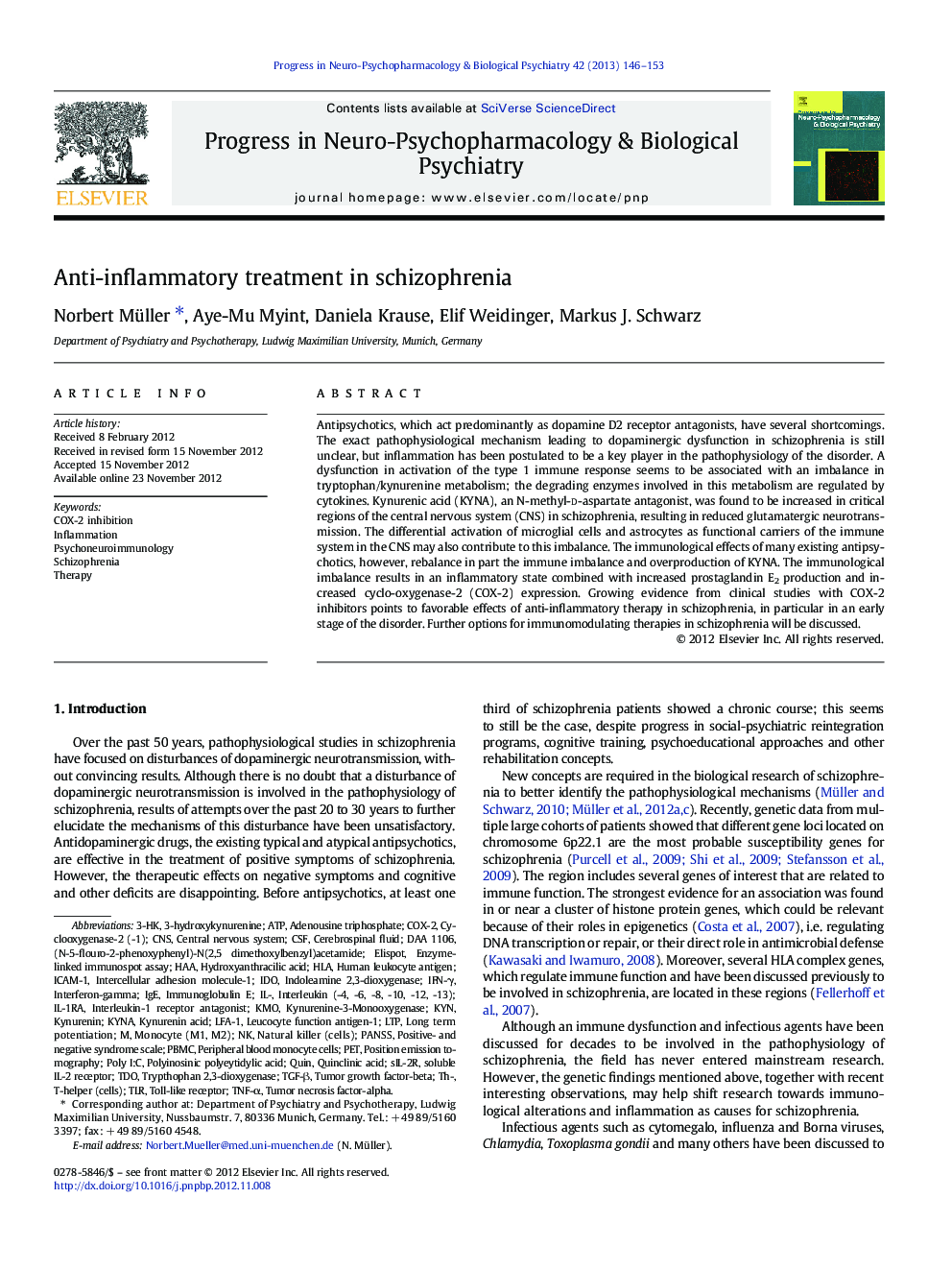| Article ID | Journal | Published Year | Pages | File Type |
|---|---|---|---|---|
| 2564931 | Progress in Neuro-Psychopharmacology and Biological Psychiatry | 2013 | 8 Pages |
Antipsychotics, which act predominantly as dopamine D2 receptor antagonists, have several shortcomings. The exact pathophysiological mechanism leading to dopaminergic dysfunction in schizophrenia is still unclear, but inflammation has been postulated to be a key player in the pathophysiology of the disorder. A dysfunction in activation of the type 1 immune response seems to be associated with an imbalance in tryptophan/kynurenine metabolism; the degrading enzymes involved in this metabolism are regulated by cytokines. Kynurenic acid (KYNA), an N-methyl-d-aspartate antagonist, was found to be increased in critical regions of the central nervous system (CNS) in schizophrenia, resulting in reduced glutamatergic neurotransmission. The differential activation of microglial cells and astrocytes as functional carriers of the immune system in the CNS may also contribute to this imbalance. The immunological effects of many existing antipsychotics, however, rebalance in part the immune imbalance and overproduction of KYNA. The immunological imbalance results in an inflammatory state combined with increased prostaglandin E2 production and increased cyclo-oxygenase-2 (COX-2) expression. Growing evidence from clinical studies with COX-2 inhibitors points to favorable effects of anti-inflammatory therapy in schizophrenia, in particular in an early stage of the disorder. Further options for immunomodulating therapies in schizophrenia will be discussed.
► A (mild, localized) inflammatory process plays a role in schizophrenia. ► The immune-imbalance is associated with imbalance in tryptophan/kynurenine metabolism. ► The inflammation leads to over expression of prostaglandins. ► Antipsychotics have immune-modulatory effects. ► COX-2 inhibitors have beneficial effects in schizophrenia.
